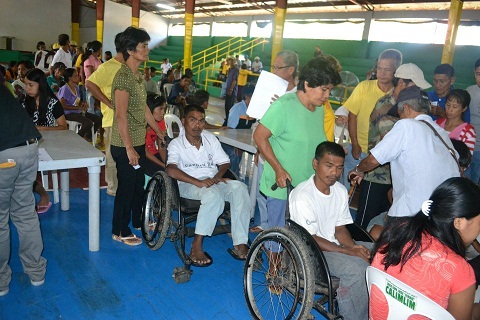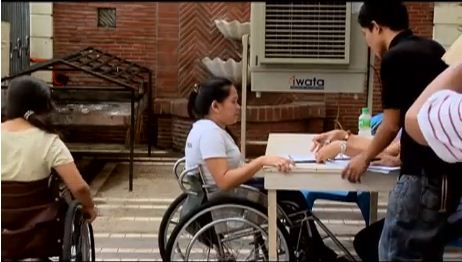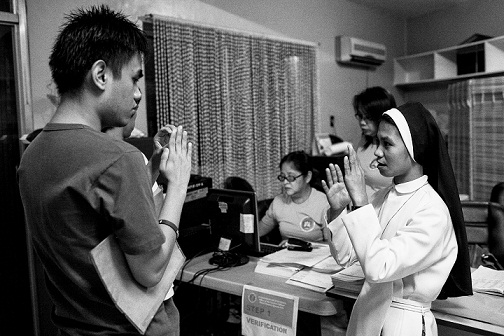Comelec Commissioner Sixto Brillantes, Jr. said Resolution 9688 was to prevent vote buying and vote selling which have intensified with the computerization of the elections. He said they released it only Tuesday “so that no one would know about it.. because if they know about it, everyone would withdraw.”
Brillantes, who was a much sought-after election lawyer (President Aquino and former Maguindanao Governer Andal Ampatuan Sr., were his clients) before he joined his elections must be joking. Or could it be that he precisely knew that by now the silly money ban is useless.
The United Nations Convention on the Rights of PWDs and the country’s Magna Carta for PWDs guarantee the right of PWDs to to vote and stand for election to public office as part of their participation in public and political life.
VERA Files, a member of Fully Abled Nation-, a project spearheaded by The Asia Foundation with support from the Australian Agency for International Development, which aims to increase the participation of PWDs elections and other democratic processes- said there are 362,113 PWD registered voters.
Asia Foundation has come up with a checklist to find out the actual implementation of Comelec Resolution No. 9485.Here are some which persons without disabilities can help to make voting less difficult for PWDs:
-Is the polling place elevated? If elevated, is there a ramp for wheel-chaired bound PWDs to reach the ground level? Does the ramp have rails on each side? Is the ramp sturdy and non-slippery?
-If without a ramp, what provisions are there for wheelchair-bound PWDs?
-For large polling places, are there parking spaces specially designated for PWDs?
-For voting centers with PWDs, are the polling places of precincts at the ground floor?
-For clustered precincts with PWDs, is there a waiting area established specifically for PWDs? Is there a Special Board of Election Inspectors and support staff assigned to the polling center?
- Is there an express lane dedicated to PWDs? Is there a sign inside the polling place indicating the location of this express lane and who could avail of it?
-Do the tables and desks to be used for voting have sufficient leg-space for wheel-chair bound PWDs? Are the toilet facilities suitable for wheelchair-bound PWDs in terms of adequacy of turning spaces?
-Are there sufficient signages for PWDs from point of entry to connecting destination?
-Are there sufficient communication devices for deaf/mute PWDs such as paper and pen, interpreters, large prints and guides?
Let’s make every vote count. Including that of our PWD countrymen.


